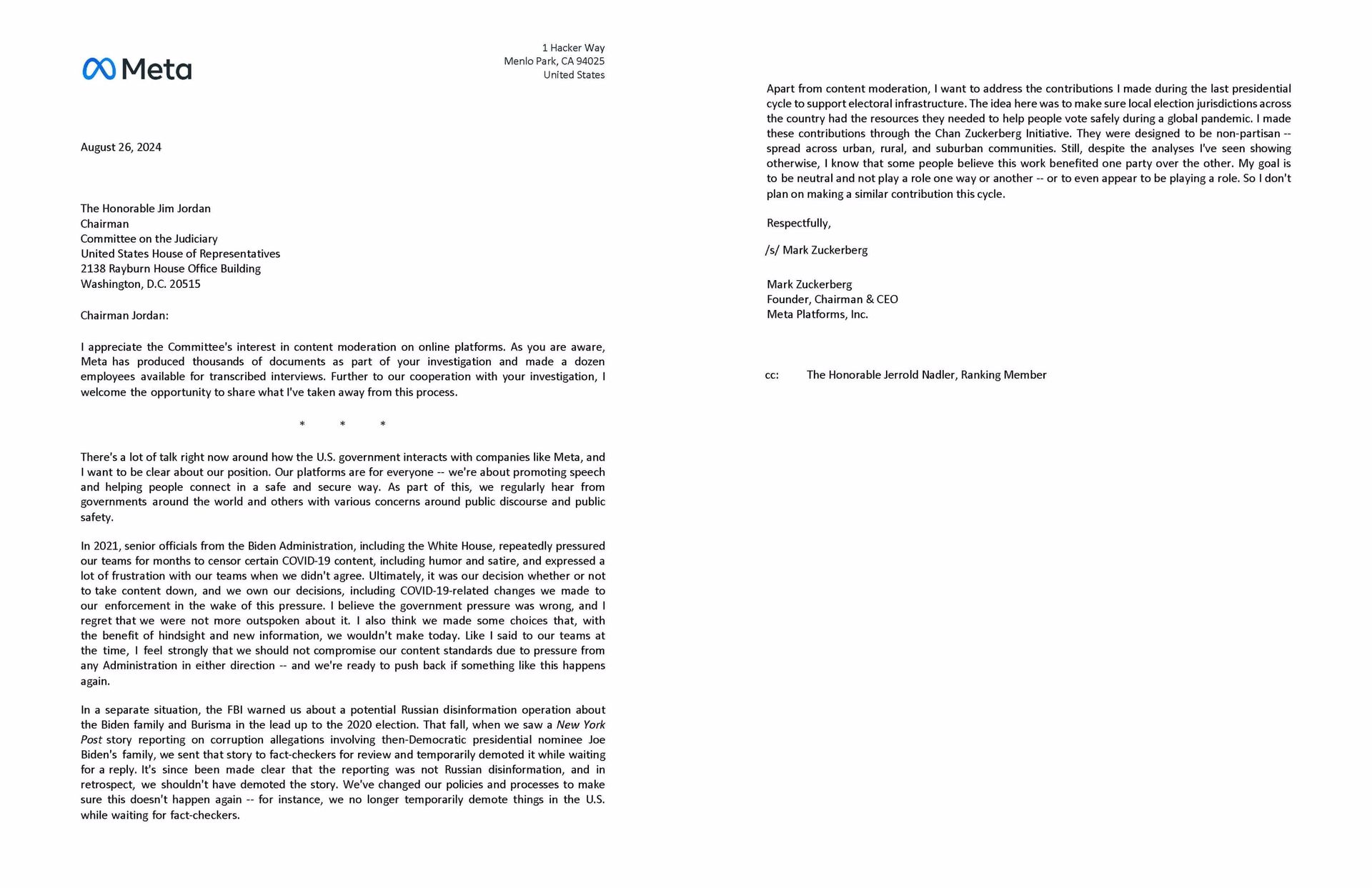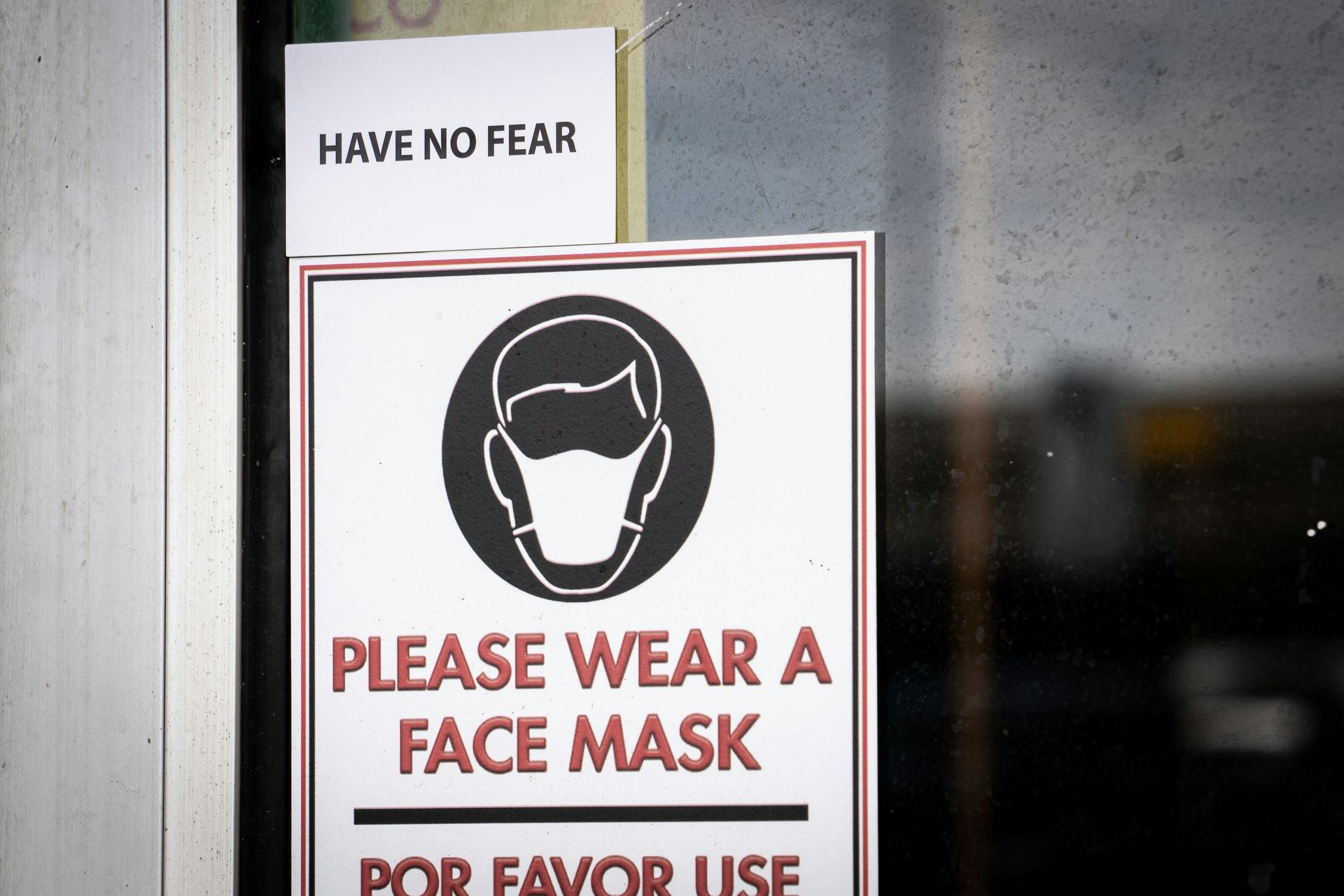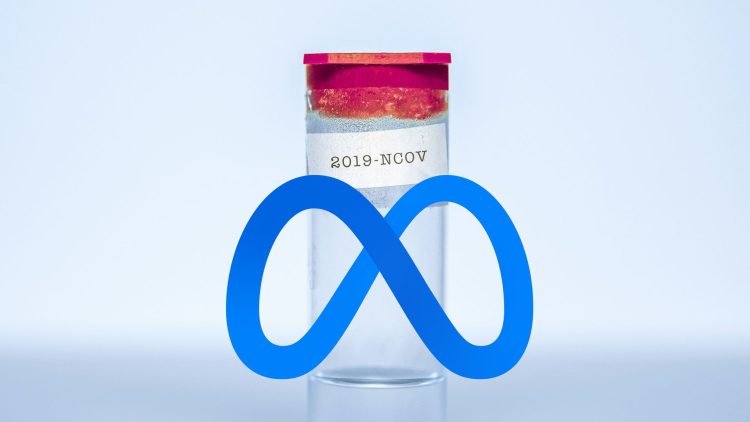Meta censorship has become a hot topic as Mark Zuckerberg, CEO of Meta Platforms Inc., recently revealed that the U.S. government pressured his company to censor certain COVID-19-related content. In a letter addressed to the U.S. House Judiciary Committee, Zuckerberg expressed regret over his company’s decision to comply with these demands during the pandemic.
In the letter, Zuckerberg detailed how senior officials from the Biden Administration repeatedly urged Meta to remove content, including humor and satire, that criticized the government’s handling of the pandemic. Despite Meta having the final say on whether to remove the content, Zuckerberg described the pressure as “wrong” and admitted that he wishes the company had been more vocal in resisting the demands.

The consequences of Meta censorship
Meta censorship during the pandemic affected millions of posts. Critics said this stifled free speech, especially on lockdowns, vaccines, and masks. Zuckerberg’s regret adds to the debate about social media moderation. Zuckerberg isn’t the only social media boss to think about past decisions about content moderation. Jack Dorsey, the former Twitter boss, has also said he regrets some moderation practices. This shows a wider discussion about how to balance public safety and free speech online.
Zuckerberg says Meta will not change its content standards because of government pressure. This could affect how Meta handles content moderation. Zuckerberg also discussed the New York Post‘s coverage of Hunter Biden ahead of the 2020 election. At the time, Meta limited the distribution of the story, which the FBI had flagged as possible Russian disinformation. However, Zuckerberg now admits that the story was not disinformation and regrets Meta’s decision to downplay it.

Political implications and free speech
Zuckerberg’s comments have attracted attention from Republicans, particularly Jim Jordan, who has been critical of the Biden administration’s influence over social media companies. Jordan and others see Zuckerberg’s admissions as a victory for free speech, particularly for conservative voices that felt targeted during the pandemic. The White House said it was right to encourage people to act responsibly during the pandemic.
The government says tech companies should think about public safety when making content decisions. Censorship by Meta is a controversial topic, especially as the U.S. prepares for another presidential election. Zuckerberg said he won’t give money to election infrastructure again. This was meant to be non-partisan, but some thought it favored one side. This shows that Meta may be more careful in the future. People will watch how Meta acts as the debate continues. It is not yet clear if Meta can do this without affecting free speech. But Zuckerberg says he will do his best to keep Meta’s standards.
Featured image credit: Vincent Ghilione / Unsplash





